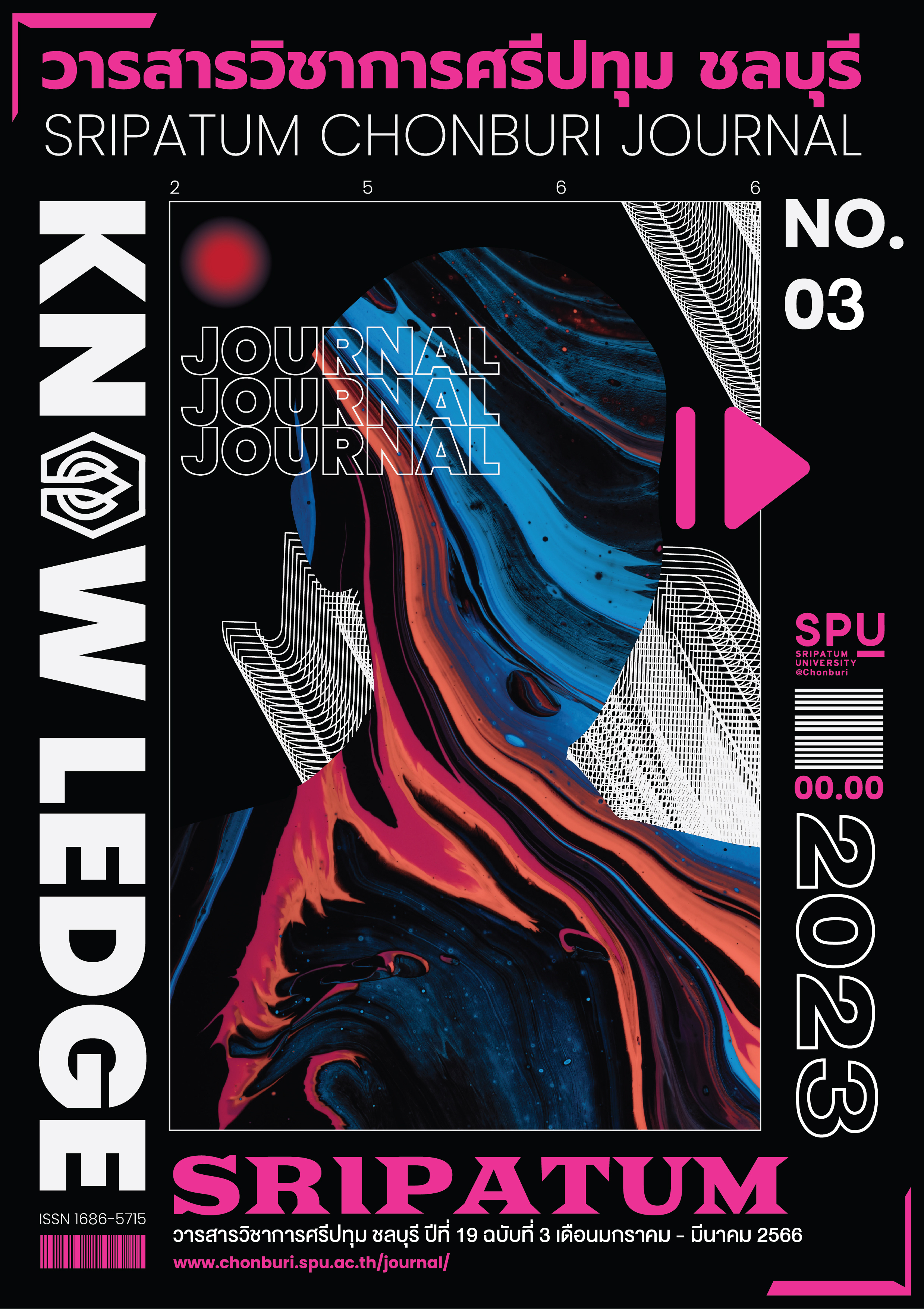ENHANCING BAN BANG KOO COMMUNITY LEARING BASE AS A SUSTAINABLE ECOTOURISM COMMUNITY IN KUAN THONG SUB DISTRICT, KHANOM DISTRICT, NAKHON SI THAMMARAT PROVINCE
Keywords:
Community Bases Tourism, Sustainable Ecotourism, Green TourismAbstract
The objectives of this research were to 1) explore the tourism resources of the Ban Bang Koo community, Kuan Thong Sub-district, Khanom District, Nakhon Si Thammarat Province, 2) develop a sustainable eco-tourism route by linking the Ban Bang Koo community learning base, and 3) evaluate sustainable eco-tourism routes of the community. This was a qualitative research methodology. The key informants were 30 volunteers selected voluntarily and 5 community tourism experts selected purposively. The research tools included the activity to study the potential of the Ban Bang Koo community learning base, natural resources record form, focus group activity, and issues of questions for experts’ opinions. Data were analyzed by using contents analysis. Results of the study showed that: 1) the tourism resources were community’s learning base divided into 6 areas, namely, Lamphu forest, Kai Kwai forest, Taboon forest, Kun Clam ground, fisherman's hut, and Mangrove forest. 2) Sustainable eco-tourism routes linking the Ban Bang Koo community learning base consisted of a half day excursion program using a concept of “Long Rue Har Rak” and a community-based tourism route having six stations, namely wonders of the Lamphu root tree, Kai Kwai tree, wonders of Taboon tree, catch Kun Clam, Pi Mark ’s hut, and the Mangroves forest. 3) The experts' opinions agreed that the given activities were appropriate for sustainable community ecotourism.
References
กระทรวงการท่องเที่ยวและกีฬา. (2548). คู่มือการประเมินมาตรฐานคุณภาพแหล่งท่องเที่ยวเชิงนิเวศ (พิมพ์ครั้งที่ 2). กรุงเทพฯ:
กระทรวงการท่องเที่ยวและกีฬา.
ไพริน เวชธัญญะกุล. (2563). การท่องเที่ยวเชิงนิเวศสู่การท่องเที่ยวอย่างยั่งยืน. วารสารเพื่อการพัฒนาการท่องเที่ยวสู่ความยั่งยืน, 2(1),
หน้า 50-63.
สุรินทร์ภรณ์ ศรีอินทร์ และอัจฉรา ศรีพันธ์. (2563). การจัดการความรู้ของชุมชนเพื่อการจัดการทรัพยากรป่าชายเลน. วารสารศึกษาศาสตร์
มหาวิทยาลัยนเรศวร, 22(1), หน้า 301-314.
สุวิมล ว่องวานิช และนงลักษณ์ วิรัชชัย. (2564). แนวทางการให้คำปรึกษาวิทยานิพนธ์. กรุงเทพฯ: จุฬาลงกรณ์มหาวิทยาลัย.
เสาวคนธ์ ชูบัว, จุฑามาศ พรหมมา, กฤตชญา เทพสุริวงค์ และอารีรัตน์ ชูพันธ์. (2561). การพัฒนากิจกรรมการท่องเที่ยวเชิงนิเวศทางน้ำ
สำหรับการเรียนรู้ระบบนิเวศป่าชายเลน กรณีศึกษา: ศูนย์เรียนรู้ระบบนิเวศป่าชายเลนบ้านท่าบ่อโก. วารสารการจัดการ มหาวิทยาลัย
วลัยลักษณ์. 7(1), หน้า 83-92.
อนุวัฒน์ ชมภูปัญญา และธนัสถา โรจนตระกูล. (2565). การพัฒนาศักยภาพชุมชนแบบมีส่วนร่วมสู่ชุมชนท่องเที่ยวที่ยั่งยืน. Journal
of Modern Learning Development, 7(8), หน้า 414-430.
Downloads
Published
Issue
Section
License
Copyright (c) 2023 วารสารวิชาการศรีปทุม ชลบุรี Sripatum Chonburi Journal

This work is licensed under a Creative Commons Attribution-NonCommercial-NoDerivatives 4.0 International License.
บทความทุกบทความเป็นลิขสิทธิ์ของวารสารวิชาการศรีปทุม ชลบุรี



